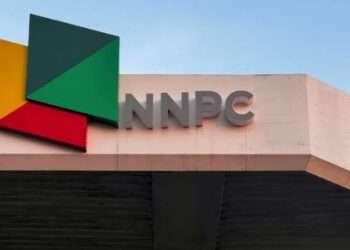Commuters across Ghana are set to enjoy some relief as transport fares have been officially reduced by 15%, effective today, following recent reductions in fuel prices and a continued strengthening of the local currency, the Ghana cedi.
The announcement comes as fuel prices dip significantly during the second pricing window of May, with major Oil Marketing Companies (OMCs) now retailing petrol and diesel at just above GH₵13 per litre. This marks one of the lowest pump prices seen in recent months, offering a breather to consumers and transport operators alike.
The Executive Secretary of the Chamber of Petroleum Consumers (COPEC), Duncan Amoah, praised the move by transport operators as timely and commendable.
In an interview, he highlighted that the fare cut would provide immediate economic relief to Ghanaians who have endured months of inflationary pressure.
“Ghanaians will be grateful to the transport operators for heeding calls for a reduction in fares.
“This is what responsible associations or unions are expected to do. A 15% cut is significant.”
Duncan Amoah, Executive Secretary of the Chamber of Petroleum Consumers (COPEC)
He also cautioned against non-compliance and called on all commercial transport operators to ensure that the new fare structure is uniformly applied across the country.

“I urge all driver unions across the country to comply so it doesn’t appear as though the system is shortchanging commuters.
“This reduction must reflect in the fares being charged in all regions.”
Duncan Amoah, Executive Secretary of the Chamber of Petroleum Consumers (COPEC)
The decision to reduce fares was welcomed by consumer groups and economic observers, particularly as fuel remains one of the most influential drivers of inflation in Ghana.
Transport unions, after weeks of pressure and dialogue with stakeholders, have agreed to revise fares downward in line with the reduced operational costs brought about by the lower fuel prices.
The fare adjustment follows the Ghana cedi’s steady appreciation against the US dollar—one of the main currencies used in international petroleum trade.
The cedi according to the Bank of Ghana (BoG) in May 2025, has appreciated by 24.1% against the US dollar, positioning it as one of the best-performing African currencies this year.
Room for Further Cuts

Mr. Amoah hinted that there could be more reductions on the horizon if current macroeconomic trends persist.
“If the trend continues and we reach GH₵10 per litre or see further strengthening of the cedi, we’ll engage the transport operators again.”
Duncan Amoah, Executive Secretary of the Chamber of Petroleum Consumers (COPEC)
Industry analysts agree that continued cedi appreciation and subdued global oil prices could keep local fuel prices under pressure in the coming months.
Ghana’s increased gold reserves and recent foreign direct investments have helped to ease foreign exchange constraints, contributing to the cedi’s positive performance.
GPRTU: Defiance Will Be Sanctioned

Confirming the fare reduction, Abbas Ibrahim Moro, Public Relations Officer of the Ghana Private Road Transport Union (GPRTU), affirmed that all union members are expected to implement the new fares immediately.
“If your Union has decided, you have no option but to comply.
“Any member who refuses to implement the 15% fare cut will face consequences.”
Abbas Ibrahim Moro, Public Relations Officer of the Ghana Private Road Transport Union (GPRTU)
He stressed that the union is serious about enforcement and will take disciplinary action against any drivers who attempt to exploit passengers or flout the directive.
While the fare reduction is officially in effect, COPEC and other civil society groups have called for active monitoring to ensure enforcement. Some drivers in the past have been slow to adjust fares downward after fuel price reductions, citing other cost pressures.
As Ghana positions itself for greater macroeconomic stability, initiatives like these will be essential in easing the burden on the average citizen and restoring confidence in public institutions.
READ ALSO: Producer Inflation Drops Sharply to 18.5% in April 2025 – GSS



















